Hub manufacturers express frustration at Shimano’s tightly-controlled licensing over Micro Spline freehub standard
Last year when Shimano released the XTR M9100 groupset, it also unveiled a brand new proprietary freehub body called Micro Spline. This Micro Spline freehub body was developed specifically to be able to run that huge 10-51t 12-speed cassette.
To begin with, DT Swiss was the only brand outside of Shimano to be granted a license to produce Micro Spline compatible freehub bodies. This seemed like an unusual move, given that rival drivetrain competitor, SRAM, had made its XD freehub design an open standard when it launched 1×11 XX1 all those years ago. The fact that it was a free and open standard no doubt assisted in the uptake of SRAM’s 1×11 drivetrains.
Shimano appears to be playing a different game though.
While the Japanese brand has granted licenses to several more brands following the official launch of Shimano’s new 12-speed XT M8100 and SLX M7100 groupsets, there are a number of popular hub and wheel manufacturers that have been left out. Some of those brands, including Hope Technology and Stan’s No Tubes, are growing increasingly frustrated with the lack of clarity about where they stand in the licensing process.
So, what’s the go with Micro Spline? And why are certain brands getting licenses, and other brands aren’t?
Here we take a look at the current state of play between Shimano and the rest of the industry.
Hold Up – What’s This Micro Spline Thingo?
Micro Spline is the name of the freehub body design that Shimano has developed alongside the latest XTR M9100, XT M8100 and SLX M7100 12-speed groupsets.
This proprietary freehub body is different to Shimano’s existing 8/9/10/11-speed HG freehub body. The overall diameter is smaller, and the splines are both deeper and more plentiful (there are 23 of them). Shimano says this has allowed it to manufacture the freehub body out of lightweight forged alloy (rather than titanium or steel), while producing a stronger interface with the corresponding cassette splines.
The Micro Spline freehub body is specific to Shimano’s new 10-45t and 10-51t 12-speed cassettes. If you want to run the latest SLX/XT/XTR drivetrains with that 10-45t or 10-51t cassette, you’ll need a Micro Spline freehub body.
Why The New Standard?
Shimano developed the Micro Spline freehub in order to accommodate its new 12-speed mountain bike cassettes, and specifically the smallest 10t cog, which is too small in diameter to fit around the current HG freehub body. And it’s the 10t cog that has helped Shimano to achieve that Eagle-beating 510% gear range.
But Why Not Use SRAM’s XD Freehub Body Standard?
Firstly, Shimano states that it wants to be able to deliver 12-speed across a wide range of price points. And because the XD freehub forces the cassette manufacturer away from a traditional cassette design (with the whole block made up of individually mounted sprockets), Shimano reckons it gets a lot harder to make a budget 12-speed cassette using that XD system.
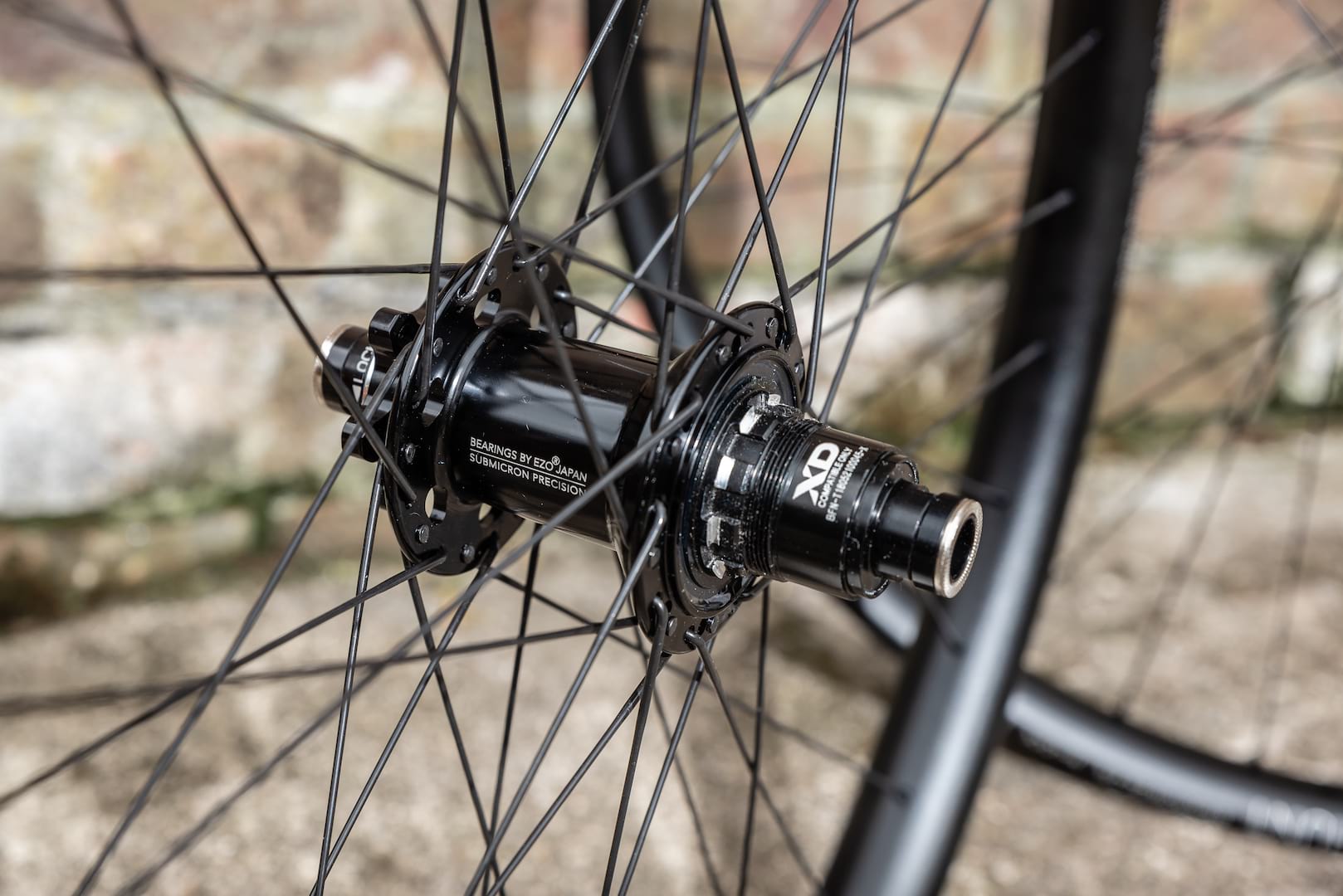
This is backed up by the fact that SRAM doesn’t build its entry-level NX 12-speed cassette around the XD standard. Instead, the 11-50t cassette (which is made up of individually stamped steel sprockets) is designed around the HG freehub body standard.
The cheapest 12-speed cassette that SRAM produces for an XD driver is the GX Eagle cassette, which costs £179. In comparison, Shimano’s new SLX M7100 cassette will retail for £99.
Those price reasonings aside, it’s also completely understandable that Shimano would prefer not to make cassettes based around a competitor’s standard. Even if it is an open one. Shimano is never keen to license other people’s technology, preferring to rely on its own innovations (which is reportedly why it stopped making its industry-leading XTR threaded headsets when the threadless Aheadset standard was introduced.)
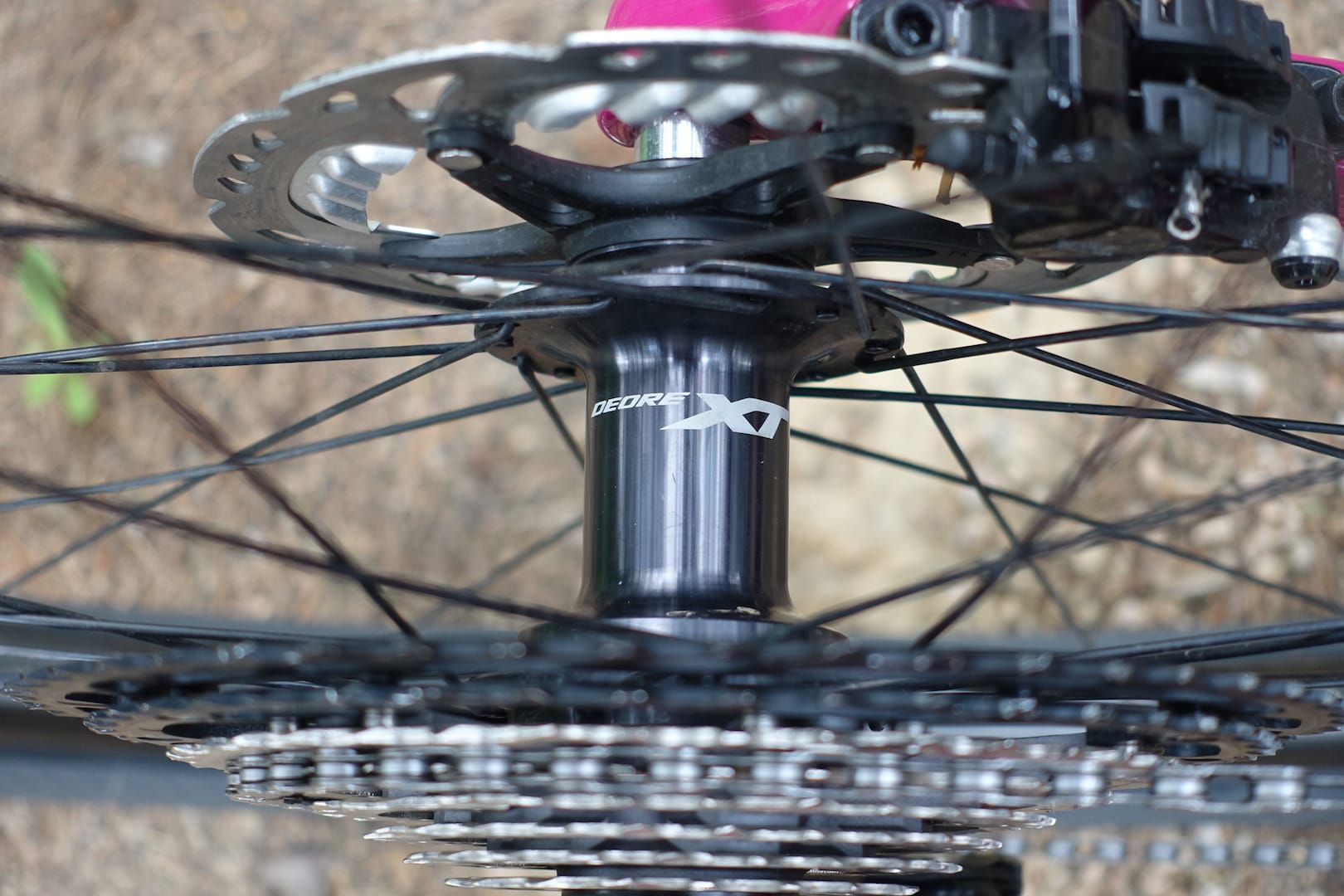
Is Everyone Making Micro Spline Freehubs Then?
No. As mentioned above, Shimano has (up until recently) only granted DT Swiss a license to produce Micro Spline freehub bodies.
However, with the recent launch of Shimano’s 12-speed XT M8100 and SLX M7100 groupsets, the list of licensees has grown to include Mavic, Newmen and Industry Nine. The Japanese manufacturer will also be producing SLX and XT-level hubs with Micro Spline freehub bodies, which will expand the options available to bike manufacturers wanting to spec the new 12-speed groupsets on their bikes.
However, there are many hub and wheel manufacturers that haven’t been granted a license as of yet. That includes the likes of Chris King, Hope Technology, Novatec, Syntace and Stan’s No Tubes.
The process of being granted a license seems to be particularly frustrating for some, with Hope Technology recently throwing shade at Shimano via a public post on its Facebook page.
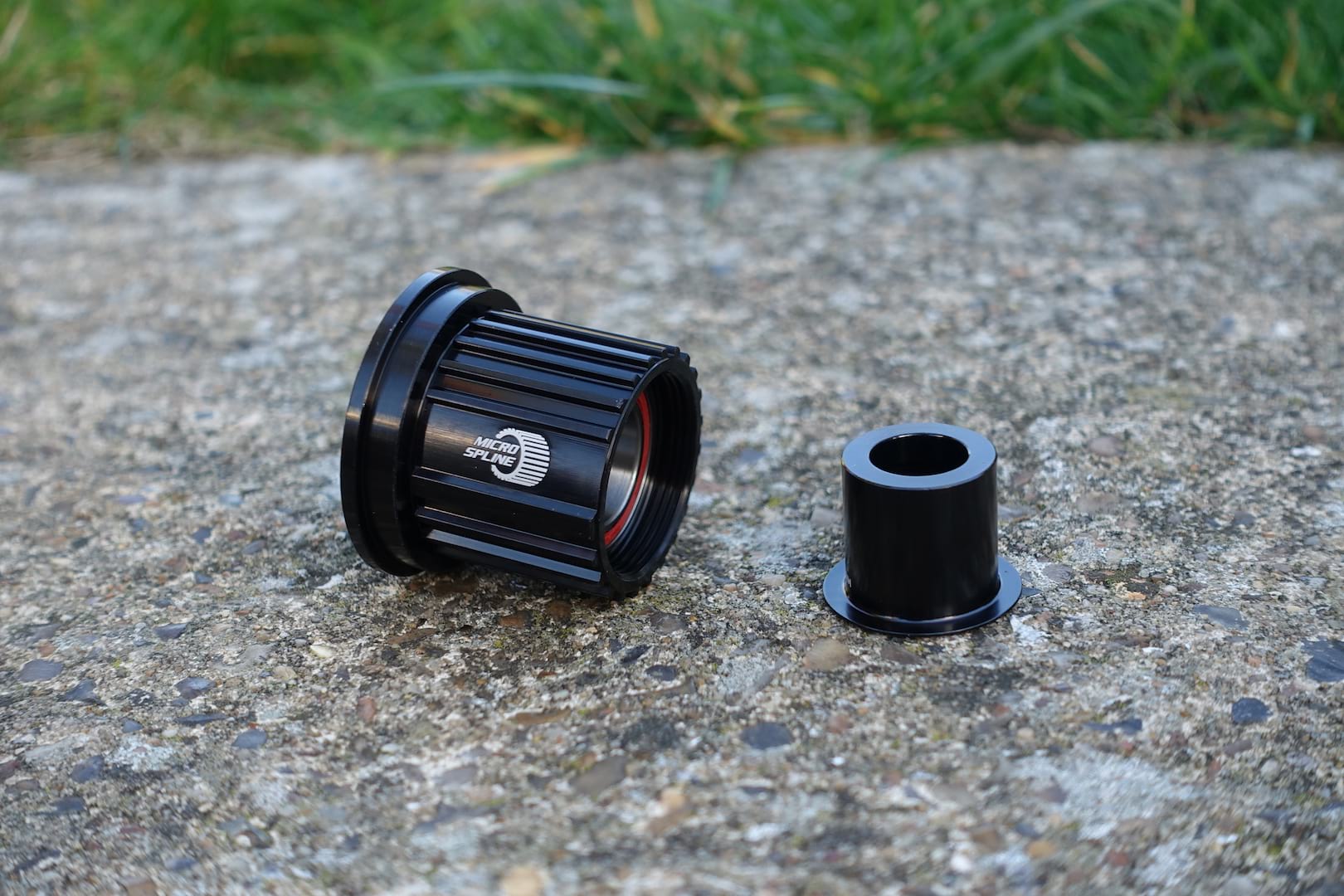
Hope Technology & Stan’s No Tubes’ Respond
We contacted Hope to get more info on where the Barnoldswick-based manufacturer is at with its ongoing discussion with Shimano about licensing the Micro Spline freehub body standard. Here’s the word direct from Hope’s Sales & Marketing Officer, Alan Weatherill;
“We have been talking with Shimano since their new Micro Spline was first announced. Their initial response was that they were only licensing it to DT, but we then heard I9 (Industry Nine) had a licence for OEM. They do seem to be opening it up to more companies now which is good for consumers to give them more choice, although many brands, including ourselves seem to have been overlooked. We’re continuing to ask them for a licence and will announce news when we have it.“
Following the public statement from Hope, we got in touch with Stan’s No Tubes to find out where it stands on the licensing issue.
“We’re in a similar position to Hope” responded Stan’s No Tubes Creative Director, Chris Currie. “And, unfortunately, about the only value I can provide consumers right now is to affirm that communication between companies in the bike industry is often quite poor. Stan’s laments the effect this has on consumers. I may have additional information in the next few weeks.“
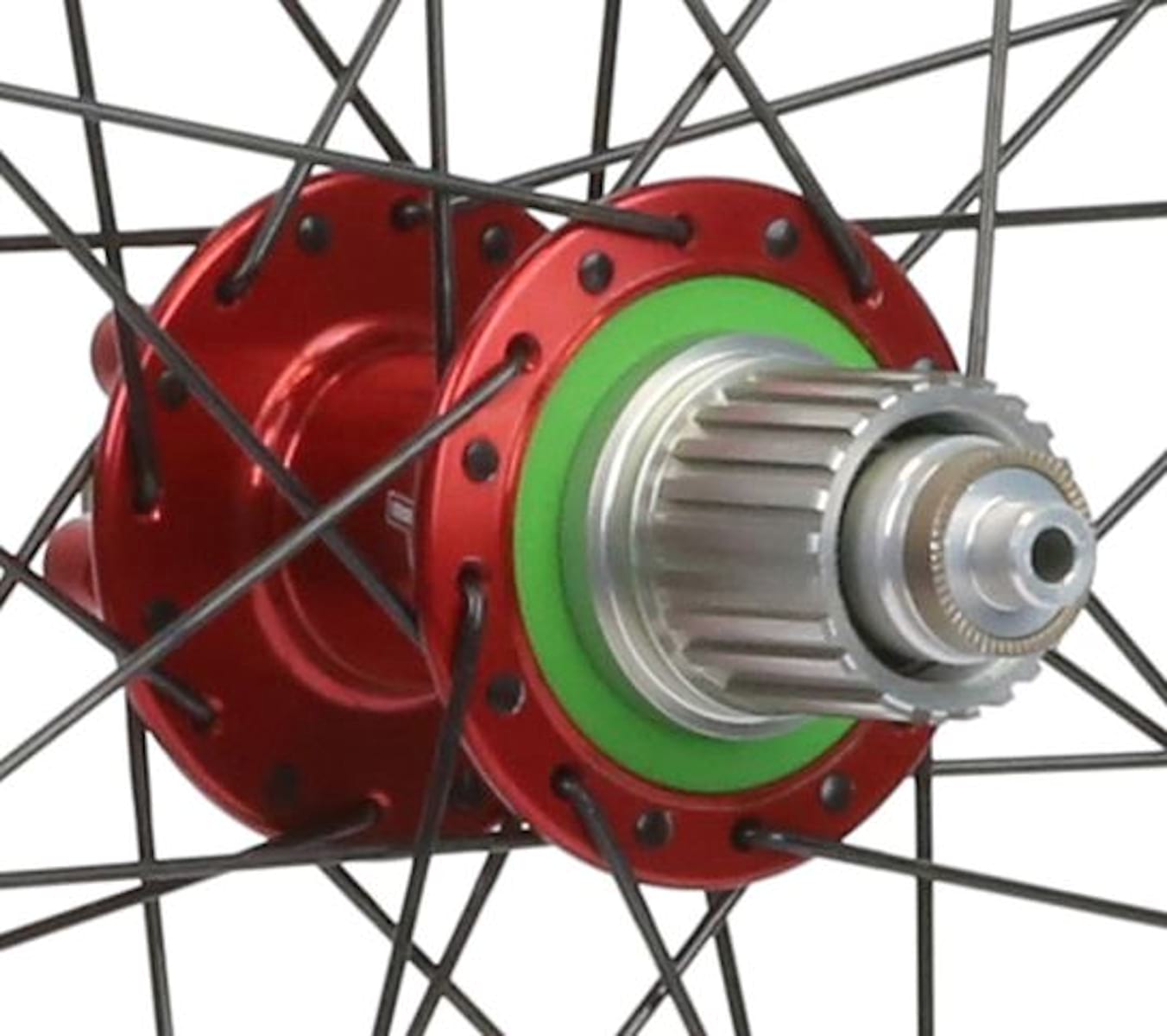
So What Does That All Mean?
From what we understand here at Singletrack, Shimano has restricted its Micro Spline licenses to brands that are producing hubs or wheels for complete bikes. That is to say, its primary focus is on the OEM market and the big brands who will be spec’ing SLX/XT/XTR groupsets on their complete bikes.
For this reason, you can see why DT Swiss was the first licensee of the design – there are a lot of wheel brands out there that are either manufactured by DT Swiss completely, or utilise DT Swiss hub internals. These include Giant, Roval (Specialized), and Bontrager (Trek) – three very big Shimano customers.
It was mentioned several times during the XT/SLX launch that Syncros has also become a recent Micro Spline licensee, though for some reason the Syncros name has been missing from the official press release material. With Syncros being an in-house brand for Scott Sports (a brand that would potentially be ordering A LOT of Shimano 12-speed product to spec on its own bikes), it would make sense for Shimano to grant Syncros a license.
This would also explain why both Mavic and Newmen are also on the list. These are two wheel brands that are spec’d heavily at an OEM level, particularly with German brands including Canyon and Cube. Of course Shimano would want to ensure that those bike brands are able to spec its new 12-speed drivetrains as easily as possible.
This would appear to be the main distinction as to which brands are being granted licenses first. If you’re a big bike manufacturer that’s making your own wheels with your brand name on the hubs, then it would seem that you’ll be prioritised over the standalone hub/wheel manufacturers.
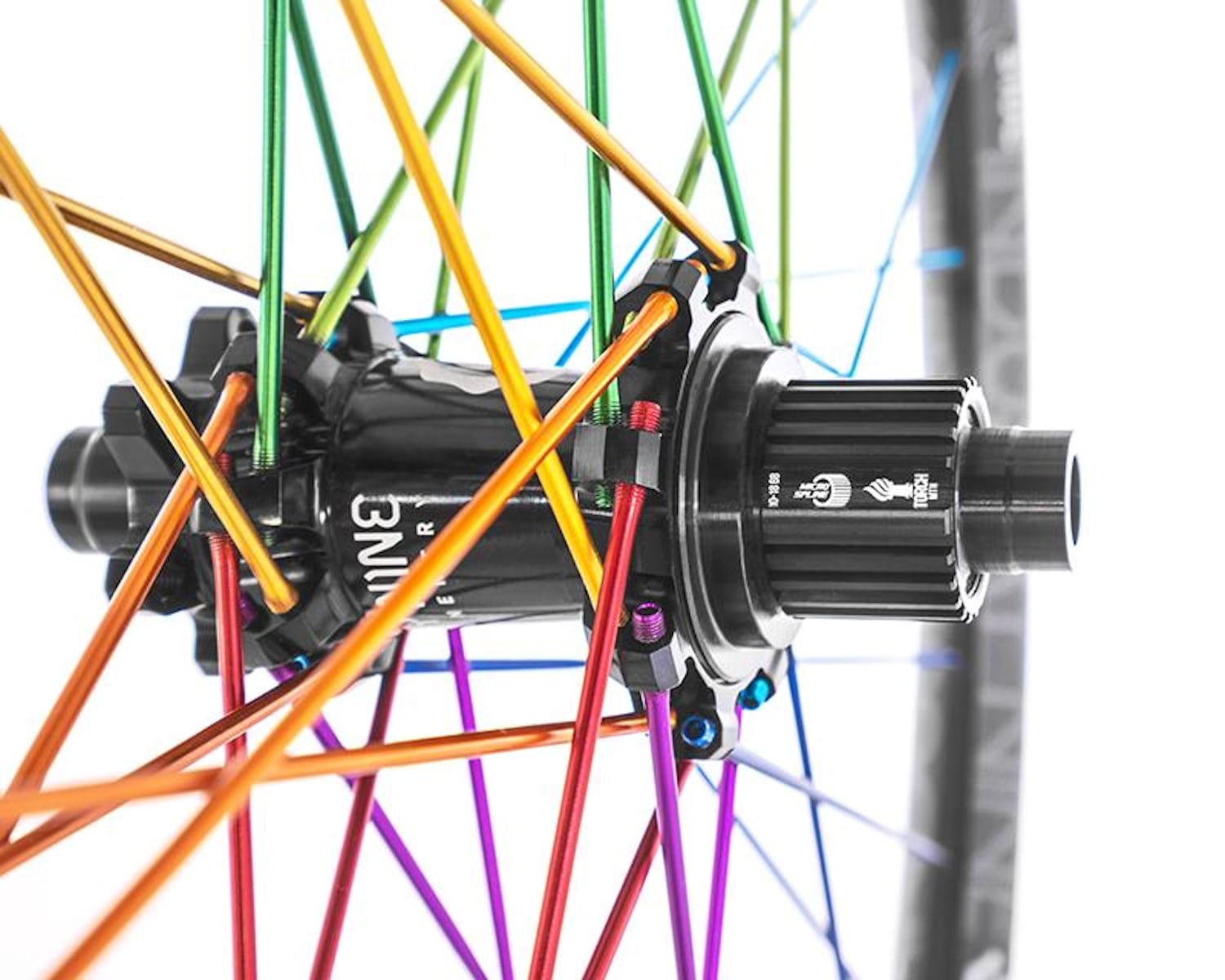
What About Industry Nine Then?
Industry Nine stands out on the approved licensee list, because on face value, it’s one of those smaller aftermarket hub and wheel manufacturers. However, it’s worth remembering that Industry Nine does produce rear hubs that end up laced into complete wheels (including Reynolds, Crank Brothers and Santa Cruz Reserve wheels), which are spec’d on complete bikes (including Santa Cruz and Pivot).
Again, these are important customers for Shimano.
“We are happy to build on our relationship with Shimano and flattered to be one of the few brands offered a license for Micro Spline“, stated Industry Nine’s Vice President, Jacob McGahey, when the licensing agreement was made public back in October. “This partnership allows our brand to continue offering all major axle and drivetrain specs – which riders have come to expect from Industry Nine.“
Where part of Hope Technology’s frustration comes from though, is the fact that Industry Nine doesn’t make wheels exclusively for the OEM market. That is to say, that (just like Hope) Industry Nine makes hubs and wheels that are available to purchase on their own.
And indeed, Industry Nine is selling Micro Spline freehub bodies on its website, which means riders with existing I9 wheels/hubs could upgrade to Micro Spline freehub body. And this is exactly what Hope would like to do.
White Industries Goes Its Own Way
One brand that looks like it may or may not be flipping the middle finger to Shimano and its Micro Spline policy is White Industries.
The California-based manufacturer is offering a Micro Spline compatible freehub that changes up the design by reducing the number of splines from 23 down to 12. The body itself is made from titanium, which apparently makes it strong enough to forgo those other 11 splines.
White Industries already has its Micro Spline compatible freehub bodies available on its website, allowing existing users the option to fit a Shimano 12-speed cassette without need to change out their rear hub. It will be interesting to see if any other brand goes down this route and attempt to dodge Shimano’s patents.
Shimano’s Response
Given Hope’s public statement about its ongoing licensing frustrations, we got in touch with Shimano Europe’s PR Officer, Ben Hillsdon, to see what the party line was from the Japanese brand.
“In addition to our own XTR M9100 hubs, DEORE XT M8100 hubs and wheels, and SLX M7100 hubs with a MICRO SPLINE freehub, brands including DT Swiss, Mavic, Newmen and Industry Nine are licensed to produce their own freehub bodies with a MICRO SPLINE structure to fit the MICRO SPLINE cassettes. This means that these brands can offer complete Shimano-compatible 12-speed wheels. Additional hub brands using the MICRO SPLINE freehub body will be announced in the coming season.“
So nothing really new there. But with 2020 model year bikes are just around the corner, we do expect to hear more announcements very soon.
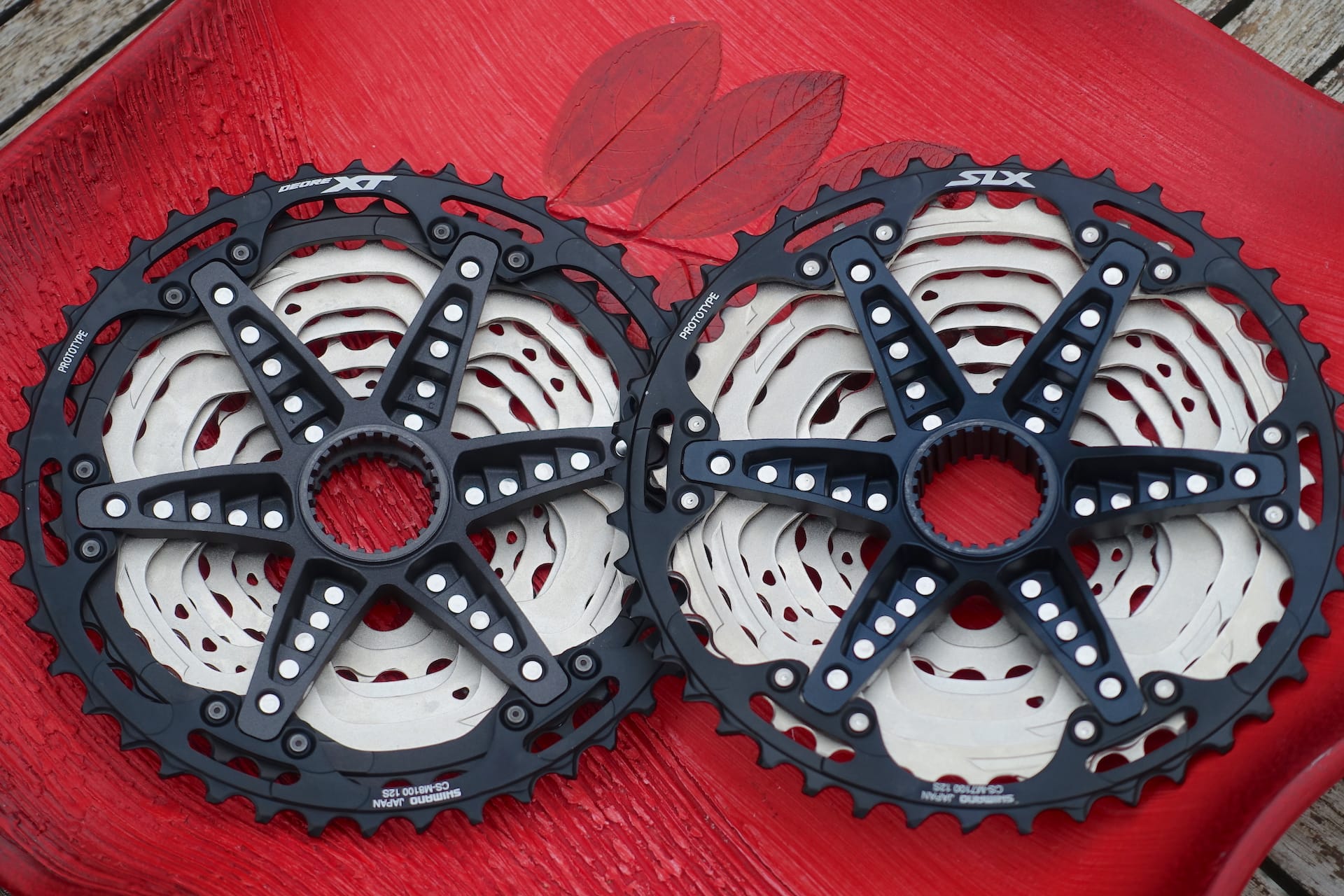
And So It Begins
One brand that we were able to get confirmation from though is Trek/Bontrager. “As far as Micro Spline goes we are licensed to make it. We already have freehubs in stock for our DT compatible hubs, and will be getting in the Rapid Drive compatible freehubs in July.“
Giant also confirmed it would be using Micro Spline compatible freehubs on its top-end XCR/TRX 0 wheels, which utilise DT Swiss freehub internals. “Our WheelSystems utilize DT Swiss internals, so the Micro Spline adoption is relatively straightforward for us” explained Andrew Juskaitis of Giant USA. “For DT Swiss 240 hub internal wheels that use the DT Star Ratchet hub, the new XCR 0 and TRX 0 wheels (2019+), are compatible using the DT Swiss Micro Spline freehub body.” Giant will be selling the Micro Spline freehub bodies separately through its dealer network, but it’s worth noting that pre-2019 XCR 0 and TRX 0 wheels are not compatible due to a clearance issue with the rear hub shell.
We’ve also reached out to several other bike brands, and will update this article as and when we get a response.
What ‘Bout Not Running A Shimano 12-Speed Cassette?
For those rides out there who want to run Shimano’s latest 1×12 drivetrains, but would prefer to utilise their existing wheels without having to re-lace in a new rear hub, alternative options do exist.
While we’ve not tested it, there are riders out there using SRAM Eagle 12-speed cassettes with Shimano XTR 12-speed derailleurs and shifters (affectionately known as the ‘Shmeagle’ setup), since the cog spacing is close enough between the two brands’ cassettes.
Beyond that, there’s a plethora of other brands producing wide-range 12-speed cassettes designed to fit on a SRAM XD freehub body if you’d prefer to go with something outside the two Big-S’s. Of course neither SRAM nor Shimano will want you mixing and matching components, and of course by skipping the Shimano 12-speed cassette, you’ll also miss out on that very impressive Hyperglide+ shifting.
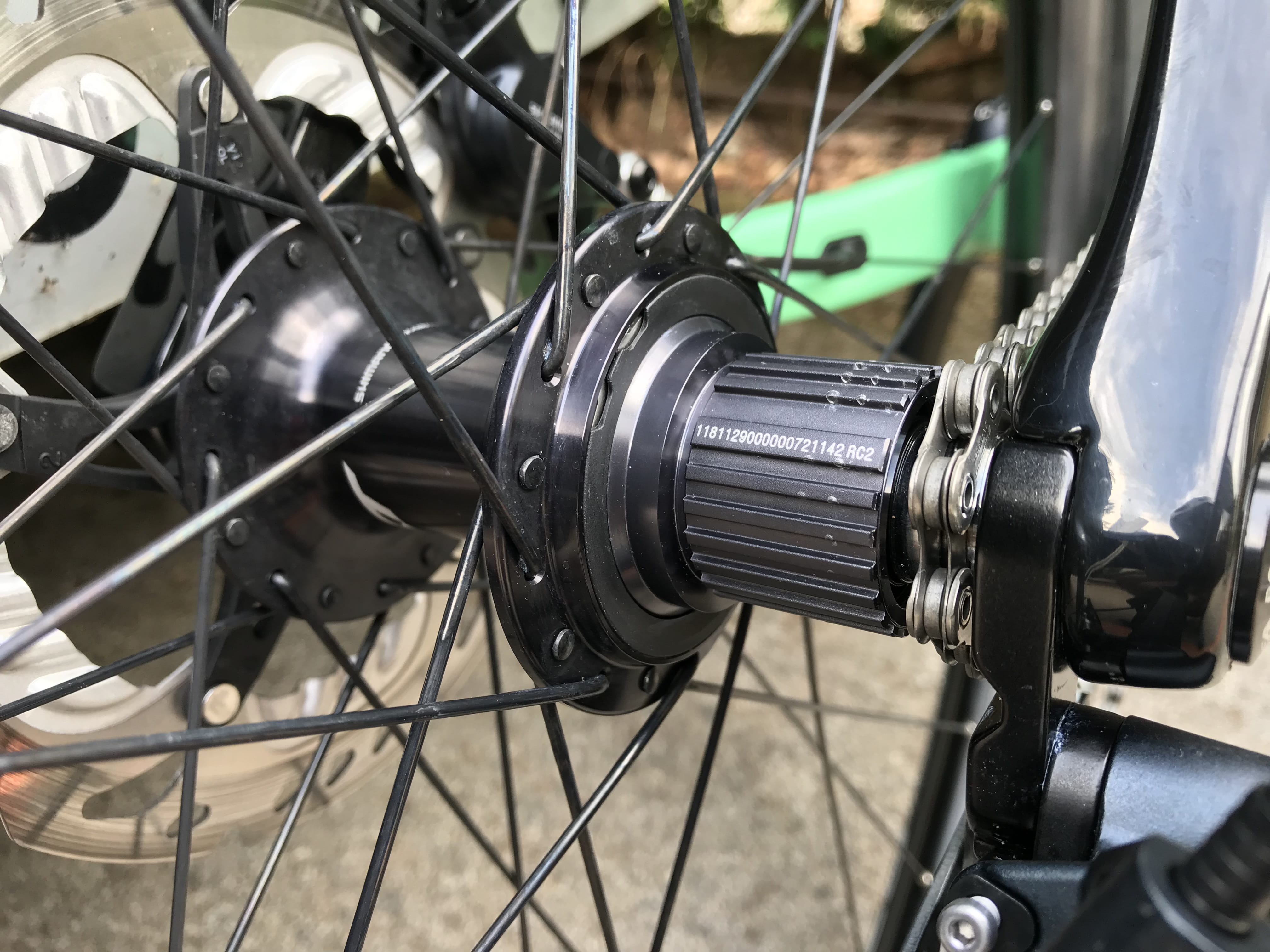
Our Take
Right now it’s still early days in the world of Micro Spline. But with XT and SLX having just been announced (and being delivered this summer too apparently), interest and demand in this new standard has grown significantly. Because of this (and the huge demand that’s likely to come with the latest groupsets), we suspect more brands will be announcing compatible freehub designs in the very near future.
However, it’s pretty clear that those are likely to be big bike brands rather than the independent component manufacturers like Hope and Stan’s No Tubes.
Now ultimately, it’s entirely up to Shimano to do what it likes with its own intellectual property. And from what we’ve seen so far, it is working alongside bike companies with a distinct focus on the OE market, which to be fair, is where the lion’s share of its sales (and profits) will be. And if it sells more of its own SLX/XT/XTR hubs along the way, then we guess it’ll be a double thumb’s up over at Shimano HQ.
However, that doesn’t really help the smaller brands, and the riders out there who want to upgrade to 12-speed without having to buy a whole new bike. From that perspective, it is somewhat baffling that Shimano has restricted the use of its Micro Spline license in the first place, rather than making it a free and open standard as SRAM did with XD way back in 2012.
Surely an open license would increase the number of potential customers for the brand’s latest 12-speed groupsets?
Given the dominance of SRAM and its 1x drivetrains over the past seven years, we’re of the opinion that Shimano could do with removing as many barriers as possible to win over those riders once again.

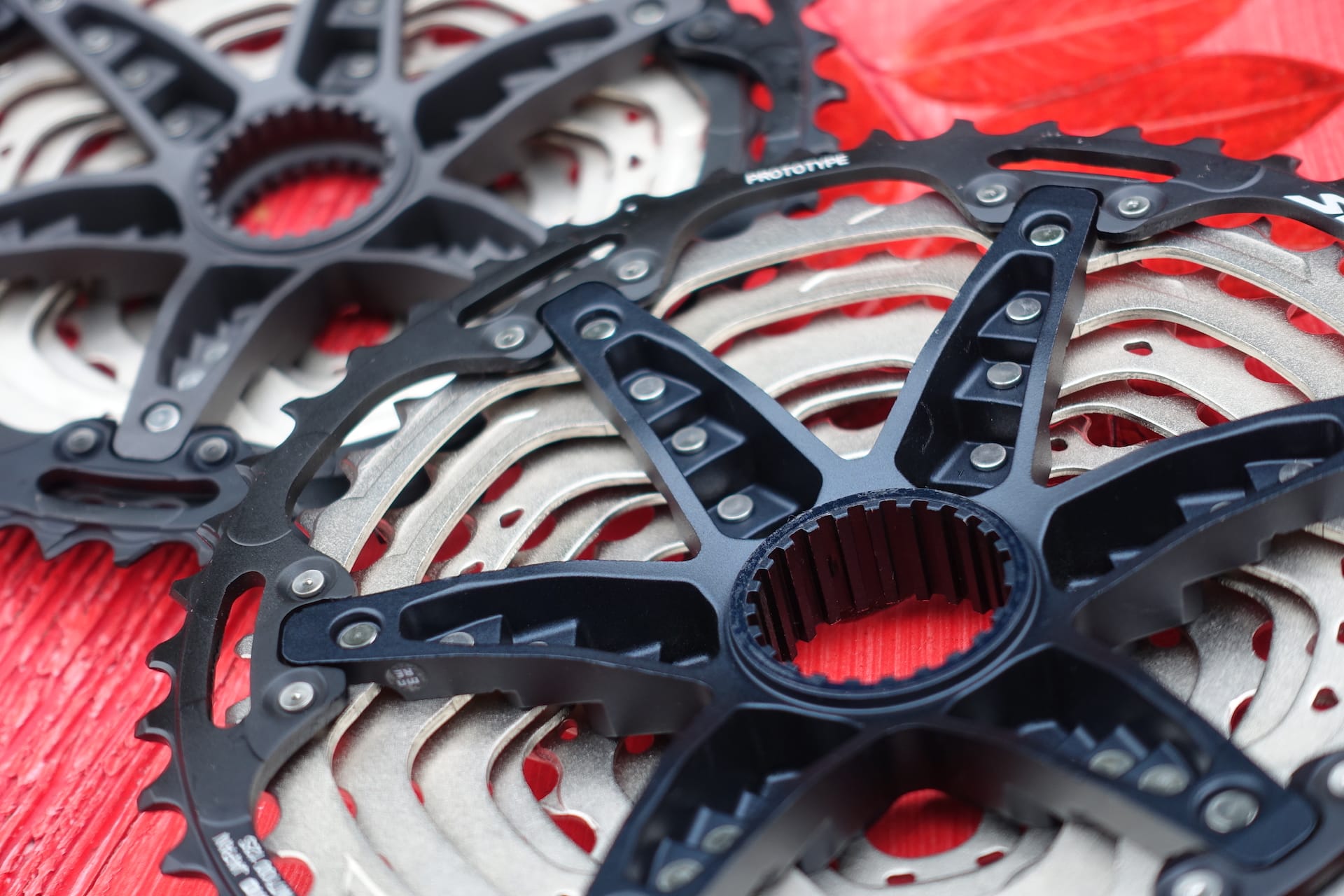





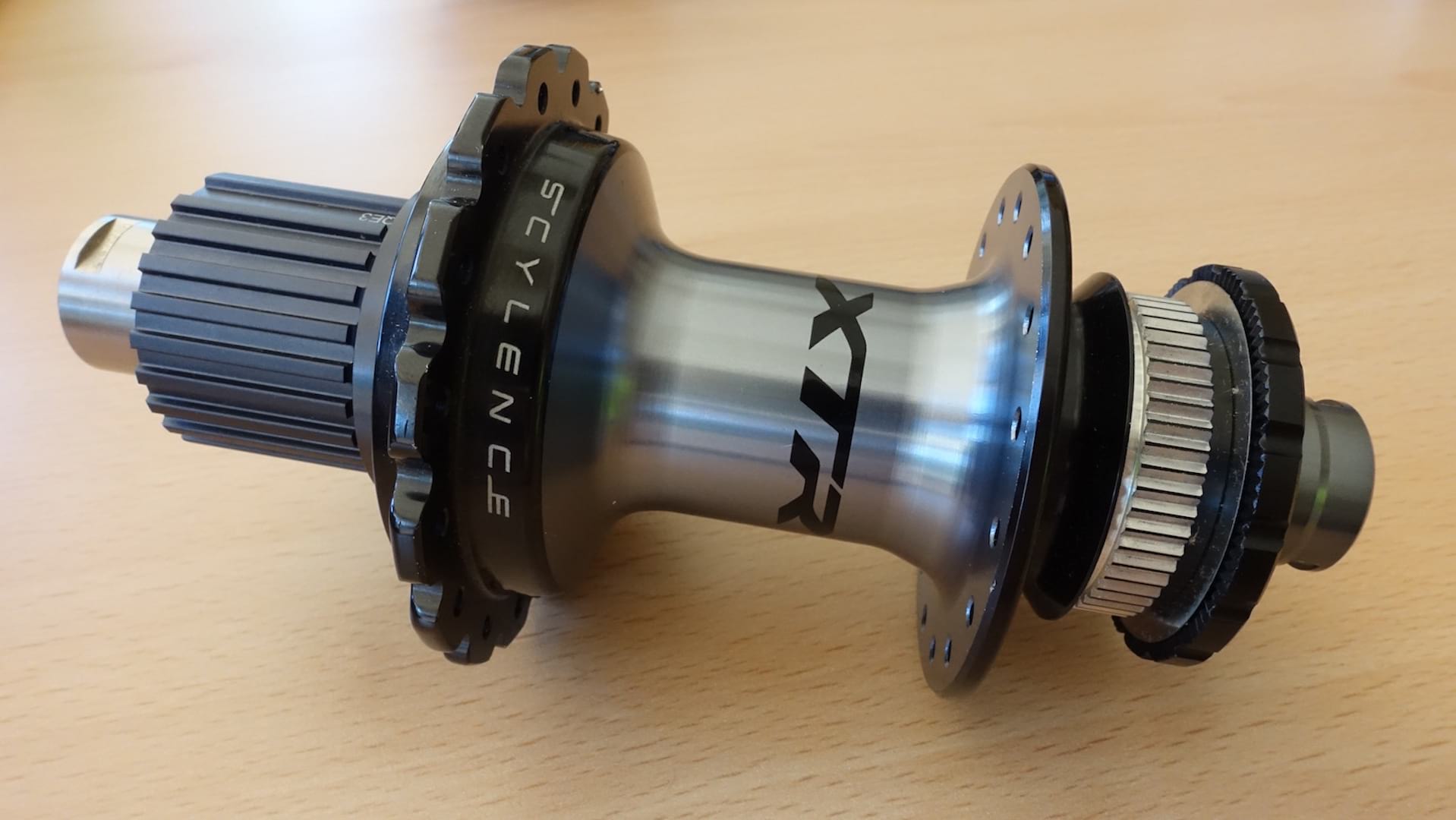
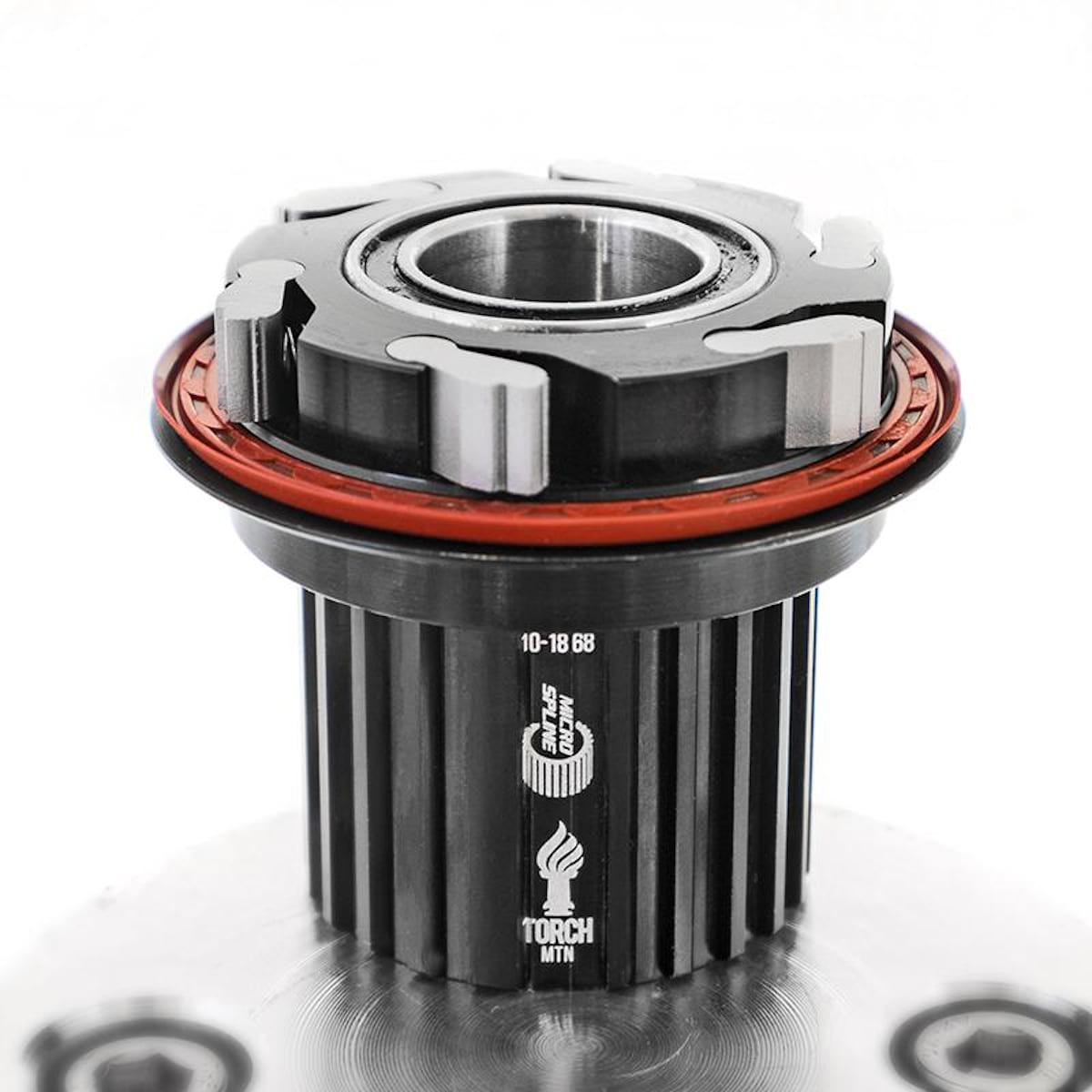
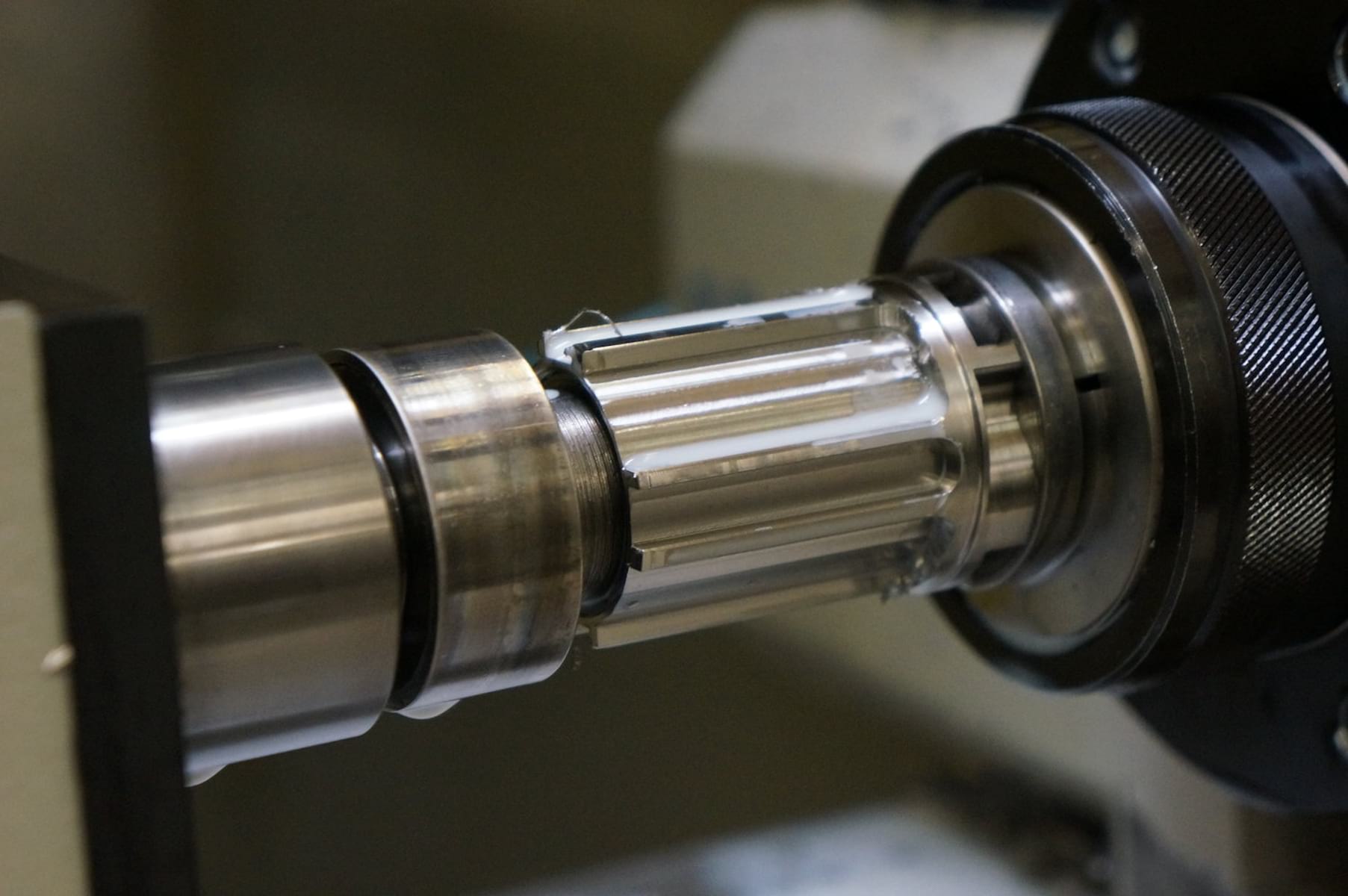
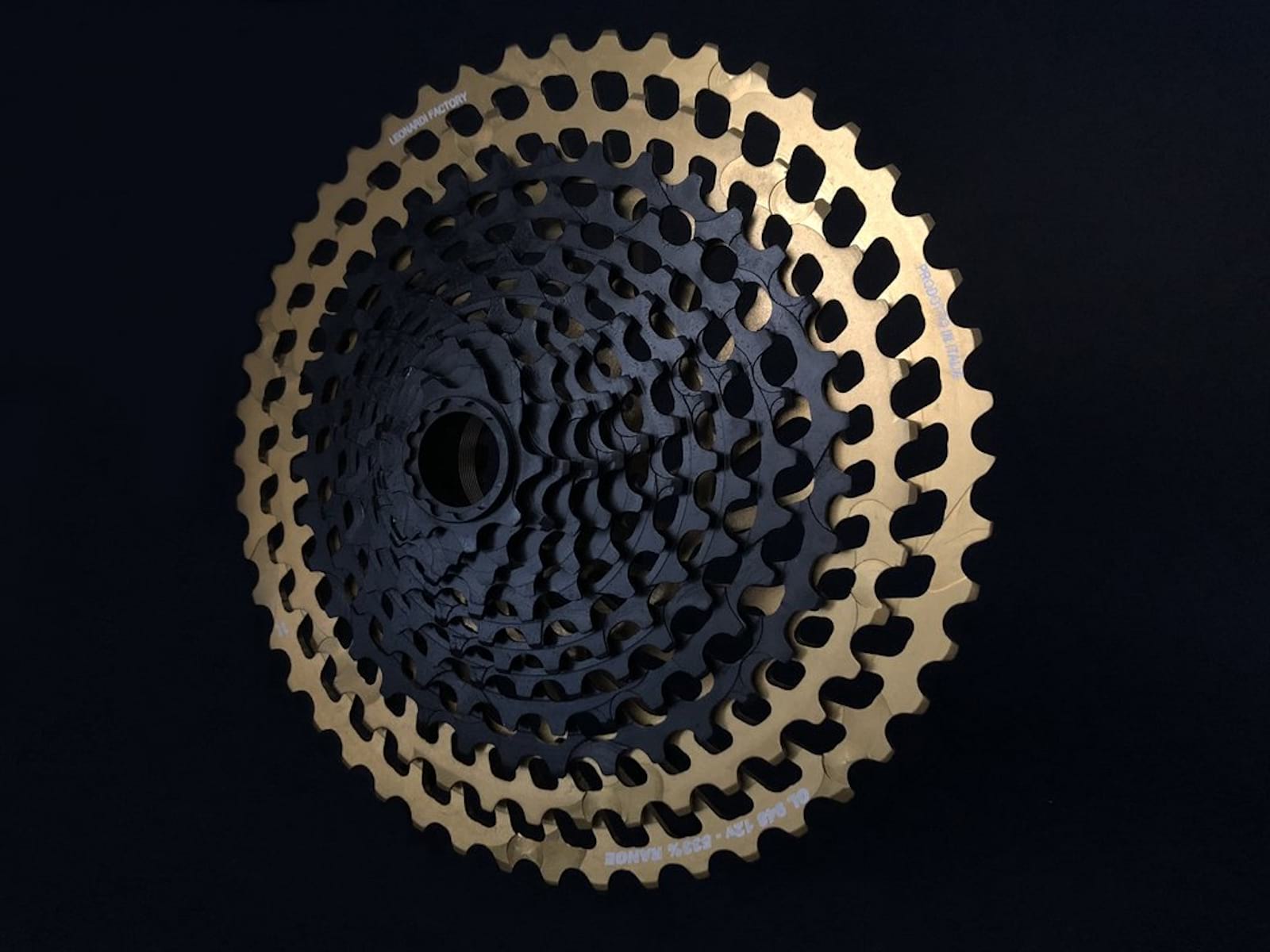
Could Hope produce their own freehub and cassette together to bypass the Micro-spline debarcle?
Betamax
20 years ago people (Moulton and others) made a combined lock ring / 10t sprocket that worked with the existing freehub spline.
So there was no need for the new micro spline – just tweak the existing freehub length / axle spacers and slightly change the smallest cassette sprockets.
Shimano also made the Capreo https://www.sheldonbrown.com/capreo.html
Gx eagle cassette with xtr derailleur and shifter and eagle chain works great!
Could other make s mircospline with 19 grooves that fit?
It all depends on what the patent covers. It could be likely that, at the moment, even Shimano don’t know the answer to that because the patents haven’t been granted yet. They might not get granted at all, or relate to a such a small specific detail of the hub that a workaround is trivial.
Just a thought:
Do we know if the forthcoming patent will be related to the spline or the Scylence part?
Are the XT/SLX Hubs Scylenced? Are the DT Swiss hubs?
If that’s the case, maybe the spline pattern will be open for use once Shimano know Scylence is safe?
@torchtaylor, I heard Shimano had to back out of the Scylence hubs because of patent infringement issues with Tune and some other manufacturers.
OTOH, while XD IS an open standard, you still have to be approved by SRAM to use it. SunRace didn’t get SRAM’s approval and they had to develop a solution to put their cassettes onto SRAM XD freehubs.
I would seem a logical thing to make the new Micro Spline design a ‘Free’ or ‘Open’ as SRAM did as you would think that would help the uptake of there 12 speed systems which would only be a good thing.
Do you know if in the future if this is resolved one way or another, is it likely that you could replace a ‘Standard’ freehub (running a Shimano XT 11 Speed cassette) with a micro spline 12 speed freehub. Or is that never going to be possible due to some major design differences and it being a smaller freehub (for that 10 tooth cog)?
realistically thats the big thing imo. the issue if they will be retrofitable.
“Do we know if the forthcoming patent will be related to the spline or the Scylence part?”
They could have multiple patent applications covering all parts of the hubs, like SRAM did for their x-sync 1x stuff
Praise the lord for 2×10. All the range. None of this restrictive-trade s@#t.
Looks like i’ll be running Shmeagle for some time yet. Nice one Shimano, a customer for 30 years getting totally shafted.
On the one hand, I understand the licensing push from Shimano. They’ve lost out on millions* in revenue in the last few years to Sram – if they open it up, Sram would jump on allowing them to mimic the cheaper 12 speed cassette design that Shimano has produced. But given that they have drivetrains like NX and the new even cheaper SX, they could easily beat Shimano out until they release 12 speed Deore or lower in the budget end of the market.
With all that being said, I imagine Shimano just aren’t a company that’s just not used to moving this fast (XT *and* SLX getting trickle down after 12 months) and they’re struggling.
*And when I say millions, I don’t just mean the last few years. It’s all the people who’ve just recently joined the sport only having ever used Sram… the people who switched that don’t want to move back because they’ve invested in a Sram bleed kit, or have solid wheels with an XD driver etc.